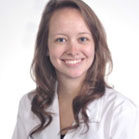Navigating the Maze: Getting an ASD Diagnosis and Moving Forward
Parents of children with Autism Spectrum Disorder and other developmental delays are often the first to recognize and raise concerns with their pediatricians that their child’s development is not progressing. Some parents first notice a delay in language use; others may begin by noticing strange behavior or play. At other times, it may be other family members, friends, teachers, or pediatricians who first raise these concerns with parents.
Before the Autism Evaluation
Once a pediatrician and parent have decided to move forward with an autism evaluation, there are several steps that parents should anticipate. Even before the official evaluation and diagnosis, the child should have a hearing test performed by an audiologist and should be referred to early intervention services if the child is under the age of 3. Often, the hearing test and early intervention services will begin before the autism evaluation due to long waitlists for these types of evaluations. Parents should anticipate waiting at least a few months to see a doctor for an autism evaluation, and some parents may wait even longer.
The Autism Evaluation: What to Expect
Autism evaluations are completed by a variety of medical professionals including developmental pediatricians, psychologists, and neurologists. An evaluation for autism takes longer than the typical doctor’s visit, and will likely last at least an hour or two, and may be broken up over multiple visits. Some doctors may complete evaluations individually, while others complete team evaluations. Team evaluations usually consist of professionals from different backgrounds (such as pediatricians, psychologists, and speech-language pathologists) working together to complete different parts of the assessment. Regardless of the approach, the evaluation will usually consist of an in-depth interview with the parent and direct evaluation of the child. Parents will usually also be asked to fill out forms about their child’s behaviors and skills.
The interview portion of the assessment can sometimes be difficult! The parent is often asked to recall dates and details of their child’s development, as well as information about family history. Some questions to anticipate include:
- How old was your child when he/she first started sitting up independently? Walking independently? Running? Jumping?
- How old was your child when he/she spoke first words other than “mama” or “dada”? What were some of his/her early words?
- If your child is speaking in phrases or sentences, how old was he/she when he/she began combining words? What were these first phrases?
- Is there anything unusual about the way your child communicates now?
- Does your child use gestures to communicate, such as pointing, waving, shaking their head or nodding?
- How does your child respond to the presence of other same-age children? To siblings? To adults?
- What are your child’s favorite games and toys?
- Has anyone in the child’s family (mother’s or father’s side) ever been diagnosed with a learning difficulty, developmental delay, autism, genetic disorder, or other medical or psychological disorder?
The clinician will also review medical history and current medical problems. If the child has been in a preschool or received any type of intervention, the clinician will want to know how long the child has been involved and what progress has been made. It may be helpful to ask your child’s teachers or therapists to provide you with progress notes before visiting the doctor. If your child is receiving special services, bring a copy of the child’s current Individualized Family Service Plan (IFSP) or Individualized Education Program (IEP).
Direct assessment with the child can take a variety of forms. Some clinicians may try to engage your child in structured tasks, while other assessments appear less structured and more play-based. A high quality assessment for autism should always include:
- An assessment that measures your child’s level of development. This assessment can be completed through direct testing or parent interview, depending on the child’s age, and will help the clinician identify your child’s ability to use language, understand language, and solve problems relative to other children their age.
- An assessment that measures your child’s adaptive skills. Adaptive skills refer to how well your child gets along day-to-day and includes things like feeding him or herself, getting dressed, understanding rules, as well as social and play skills.
- An assessment that directly measures your child’s social skills. To complete this part of the assessment, some clinicians will watch and observe your child’s interactions throughout the visit, while others may complete a more formal assessment. During this part of the assessment, the clinician will gauge your child’s social communication skills. In younger children, this will include how well your child plays and shares interest and enjoyment with others. In older children, the clinician will identify your child’s strengths and weaknesses related to having back-and-forth conversations, identifying emotions, and sharing ideas, thoughts, and interests.
Depending on your child’s age, you may be present for the full evaluation. If your child is older, you may be asked to leave the room while the clinician works one-on-one with your child.
Results of Evaluation and Moving Forward
When the evaluation is complete, the doctor should share with you the results of testing as well as a diagnosis. Not all children who are evaluated for autism will receive a diagnosis of autism. Other diagnoses that your child may receive instead of (or sometimes, in addition to) autism may include:
- Global Developmental Delay or Intellectual Disability
- Speech or Language Disorder
- Attention-deficit/hyperactivity disorder or Behavior Disorder
- Anxiety Disorder
Be sure to talk to your clinician about the diagnosis that your child receives and how this best describes your child.
If your child receives a diagnosis of autism, your clinician will make recommendations about interventions and follow-up. Common recommendations for newly diagnosed children with autism include:
- Get involved with intervention services, if these have not already been started. Interventions may include speech/language therapy, occupational therapy, developmental therapy, and/or behavioral therapy.
- Talk to the school system or early intervention program (if child is under age three) about what services they can provide to a child with an autism diagnosis.
- Start a relationship with a medical professional that can track your child’s development over time. For many families this is a developmental pediatrician; for others, a psychologist or neurologist may provide this service. This is a professional who will check in with your child and family about once a year, as needed.
- Consider any follow-up medical testing. For approximately 10 to 20 percent of children with autism, a genetic cause can be identified for the disorder. You can talk to your clinician or pediatrician about genetic testing. Families who find a genetic cause can often learn about how likely they are to have another child with autism, and if their child may have any additional medical concerns associated with a specific genetic diagnosis.

